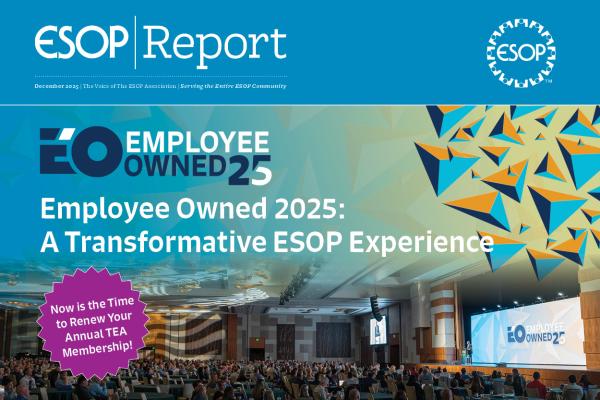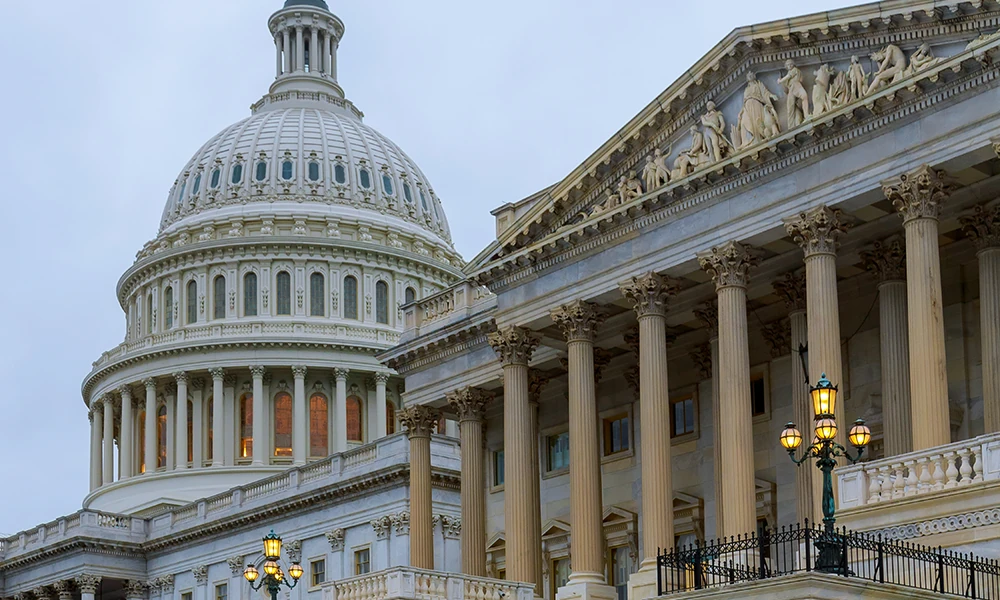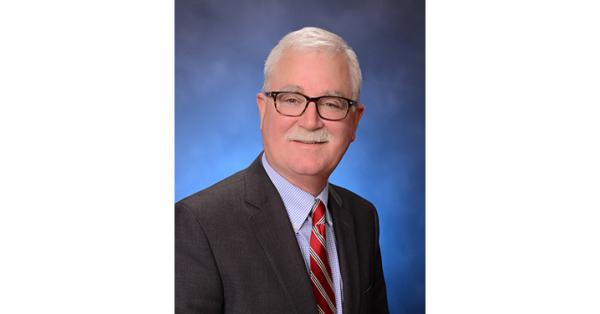March 22, 2021, Washington, DC – The ESOP Association congratulates U.S. Secretary of Labor Marty Walsh upon his confirmation by the United States Senate. Walsh enjoyed warm, bi-partisan support during hearings and was confirmed today in the full Senate by a vote of 68-29.
“We wish to congratulate Secretary Walsh and look forward to working closely with him to address the needs of the ESOP community—including the development of clear guidance on the valuation of ESOP companies, which has been needed for decades,” said James Bonham, President and CEO of the ESOP Association. “The current system is failing American workers and business owners alike, and the lack of clear guidance is having a profound chilling effect on new ESOP formation. This means millions of American workers are being denied the opportunity to become employee owners, grow their retirement savings, and own shares in the companies where they work.
“EBSA has for years forced business owners and ESOPs to guess how unique settlements and judicial orders might be applied to the broader ESOP community,” Bonham continued. “Such an approach is a terrible way to regulate a profoundly effective retirement benefit and economic tool. It also runs contrary to the Administrative Procedures Act which was designed to provide a fair process for input by those most effected by regulation.”
During his confirmation process, Senator Tammy Baldwin (D-WI) posed questions to now Secretary Walsh regarding the need for regulatory clarity:
Sen. Baldwin: Employee Stock Ownership Plans (ESOPs) provide an opportunity for workers to own a part of the companies for which they work, and these empowering arrangements provide meaningful retirement savings while also driving economic growth and creating jobs. They have also been shown time and again to improve employee productivity and help the company’s bottom line. Congress has, on a bipartisan basis, gone to great lengths to encourage ESOPS. However, the Department of Labor (DOL) has never issued guidance on key issues such as valuation of stock that is bought or owned by the ESOP, which has created ambiguity and made it difficult for companies to make business decisions. The lack of guidance has additionally led to what many ESOP companies perceive as unfair enforcement activities by DOL against ESOPs, which has had the unfortunate consequence of deterring business owners from transitioning to an ESOP model. Can I have your commitment to work to promote broad-based employee ownership among private companies, and to issue official guidance on valuation rules and similar ESOP policy issues to help create clarity for existing and prospective ESOP companies?
Secretary Walsh: At their best, ESOPs both provide valuable retirement benefits to workers and give them a direct stake in the companies that employ them. These are important goals, well worth promoting. These goals are undermined, however, when ESOPs overpay for stock or engage in transactions that waste corporate assets for the benefit of selling shareholders or management. I am looking forward to being briefed by Department staff on the scope of existing guidance and the ways in which we can promote Congress’ important goals with respect to ESOPs, while avoiding abusive transactions and overpayments that harm the workers ESOPs should be designed to protect.
Sen. Baldwin: Mayor Walsh, I appreciate that in your time as Mayor of Boston, your office led an initiative to encourage more employee ownership, including the adoption of Employee Stock Ownership Plans, or ESOPs. I too have been a supporter of ESOPs, however for some time now the ESOP community has sought greater regulatory clarity from the Department of Labor regarding appropriate methods and standards for the valuation of companies. When ERISA was passed in 1974, it directed the Department of Labor to promulgate regulations, including specifically a regulation regarding what constitutes an ESOP fiduciary’s “Adequate Consideration” for the establishment of a company’s share price. Unfortunately, DOL has not yet fulfilled that responsibility and no formal rulemaking process has been brought to a conclusion. Can you commit that as Secretary of Labor you will initiate that rulemaking process, including the opportunity for the interested stakeholders to provide their input and comments as provided under the Administrative Procedures Act?
Secretary Walsh: For the reasons indicated in the previous response, I look forward to being briefed by Departmental staff on the scope of existing guidance on valuation issues, as well as on any need for additional regulatory action. The Department would fully comply with the Administrative Procedure Act (APA) in any rulemaking, including the APA’s requirements for public notice and comment.
“We are grateful Secretary Walsh will begin investigating the history of ESOP regulation and we agree entirely that the interests of employee owners are paramount,” Bonham continued. “We look forward to providing input to that process as the representatives of employee owners, ESOPs, and the millions of potential ESOP founders who remain confused by the lack of clear guidance. Our hope is that the Secretary will listen not only to the career staff at DOL, who will understandably defend their approach for the last four decades, but also to the American workers who are subject to the current failed approach of regulation by litigation.”
# # #
For more information, contact:
Patrick Mirza
Communications Director
(202) 293-2971
pmirza@esopassociation.org







